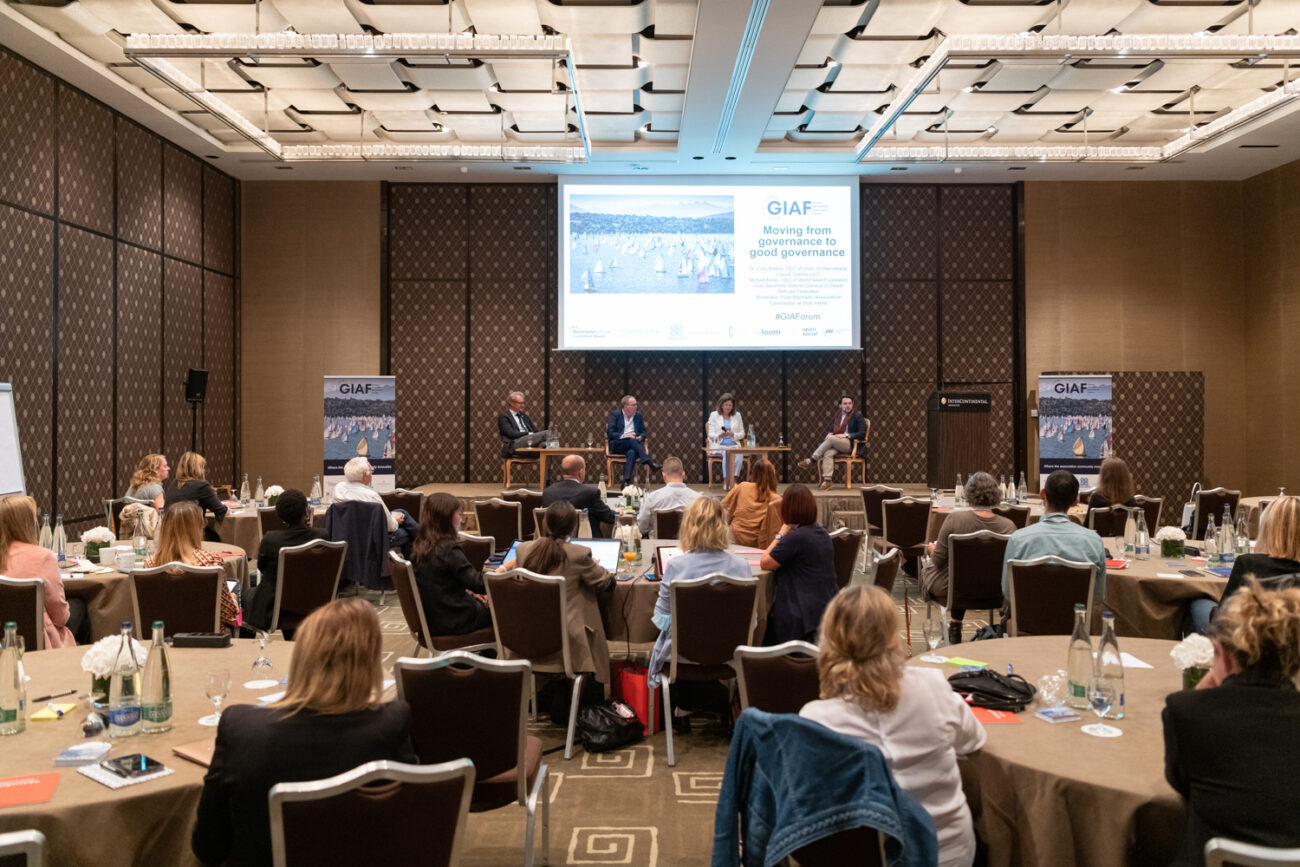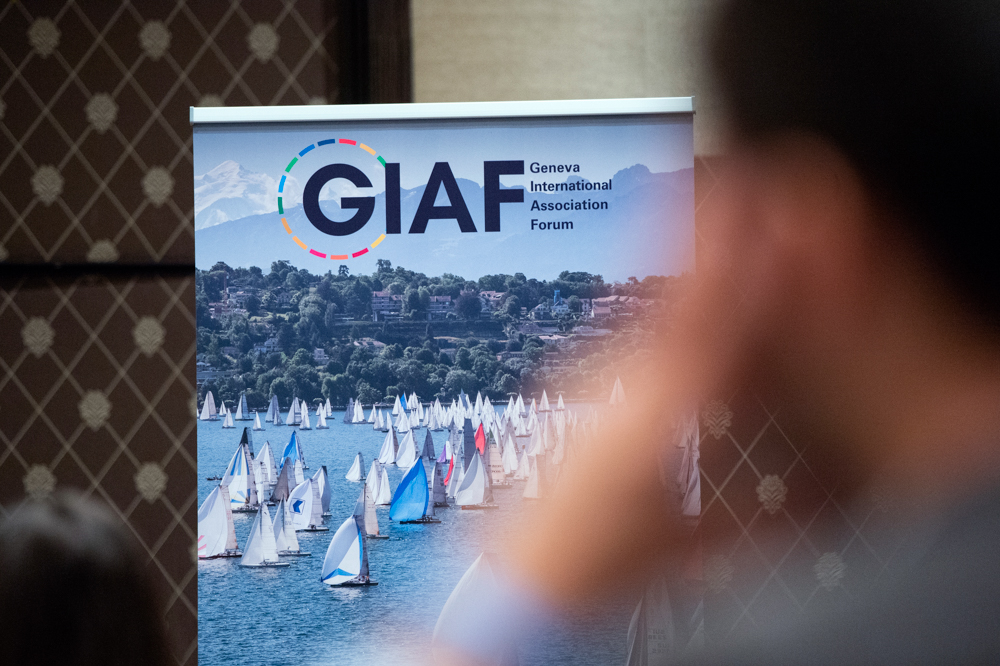GIAF’s primary goal is to establish an annual international leading flagship platform for knowledge sharing in one of the world’s leading host destinations for associations, Geneva. This first in-person edition brought together some 60 Geneva-based and international/European associations and non-profit organizations. The aim was to provide knowledge transfer, enable peer-to-peer exchange, share best practices and design joint initiatives to tackle common challenges, while helping achieve better results and greater impact.
Constant innovation
Over the course of two intense days, a wide variety of topics were explored and debated upon. The first morning kicked off with a session on Innovation and Technology Transfer by Frederick Bordry, Honorary Member of CERN, who urged associations to make “innovation constant” in everything they do: as an on-going process, innovation, indeed, increases your chances to react to changes and discover new opportunities. It can also help foster competitive advantage as it allows you to build better products and services for your members.
The panel discussion on Good Governance could easily have lasted the whole day. It is indeed of crucial importance for associations to drive towards better governance, which often enables growth and which is intimately link to “your association’s strategy and the review of it by not only your members but also your stakeholders” according to Michael Keller, CEO of International Seed Federation. Good governance in non-profits is a prerequisite for organizational legitimacy, autonomy and, ultimately, survival. “Good governance is critical because that’s what binds your organization together,” argued Dr. Cary Adams, CEO of the Union of International Cancer Control UICC. “Good governance vs governance is the ability to make – good – decisions for great outcomes.” To which it was added that “Good governance has to allow agility”, as Judith Stenmark, Director General, Global Self-Care Federation, put it.
The first afternoon was pretty much structured workshop-style. Small groups had to debate on all things related to event design: the adjustment of sponsorship strategies, the learnings from online events that can be applied to in-person conferences, the new, necessary skillsets of planners, and the impact of sustainability in event organization… among other topics. The level of engagement during this special session was unheard of, and the energy vibrant. Participants agreed, disagreed, and exchanged their personal experiences. The general opinion was that “future events will all have a virtual component, if only to make them more inclusive,” as Ariane Brusselmans, Project Director at ESOT – European Society for Organ Transplantation, commented.

Value alignment
GIAF is all about peer-to-peer exchange and the exploration of value alignment. A most welcome initiative – and something that has never been seen before – was the so-called Association Expression Session, during which organizations introduced themselves to the audience. The aim? To try to establish cross-collaboration among participating organizations by finding common grounds to work on. “The GIAF has been designed for and by associations,” commented Kai Troll, Spokesperson of GIAF and President of ASSOCIATIONWORLD. “We want them to network, exchange and grow professionally. In order to remain meaningful and with purpose, associations must continuously evolve and probably need to operate and be run with much more of a business mind. Hopefully, with GIAF – because we allow so much time for peer-to-peer exchange – they will go in that direction more easily.”
Another popular session was that on Advocacy, Communications & Campaigning. Campaigning helps to demonstrate that it is not just your organization that is concerned about the issue but also members of the public, voters and consumers. A successful campaign is one that demonstrates the concern of large numbers of the public, as the case study of the World Heart Federation by Borjana Pervan, Director of Communications, showed.
‘Raising awareness of an issue’ is not the same as advocacy to change things. Awareness of the issue is just the first step in the engagement process. Many people are already aware, but simply do not think the issue important enough to act on it. To make a real difference, you have to take people beyond ‘awareness’, to create a sense of urgency and need for change, and to help them to visualize a new future and empower them to play a part in the change – altogether, it’s a motivational exercise that requires a clear strategy.
To this end, Pervan identified key take away messages for the audience to take home. If you have first to “actively involve your leadership in all advocacy initiatives”, the first step you can concretely take is to “set your priorities according to your organization’s mission and policy environment.” Then you can develop concrete and tangible objectives, as you allocate resources to follow national and/or European policy programs. In this regard, a strategy that is backed by evidence, public opinion and smart political analysis can lead to dramatic changes for society.
A collaboration between the Barcelona Convention Bureau, Geneva Convention Bureauand Singapore Tourism Board, the InterContinental Genève, idloom, Open Social, Congrex Switzerland, GIAF paved the way for other ventures by ASSOCIATIONWORLD in Brussels, Scandinavia and Montreal. More on this very soon.
